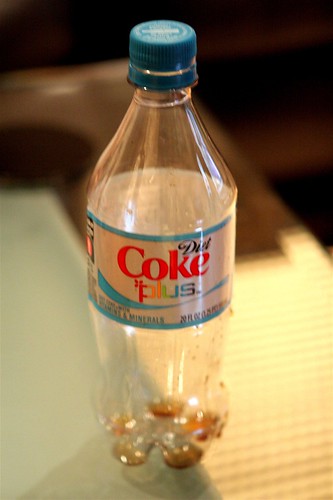Insulin And Caffeine
 I do the odd post from time to time on health issues and current research I think is interesting. About a year ago I posted an article discussing how caffeine seems to have a negative influence on the body’s insulin signaling, which ultimately affects blood sugar levels in the blood. What this ultimately means is that caffeine might be a major contributing factor in the obesity epidemic, since high insulin levels in the blood promote the storage of fat and make it difficult to burn it.
I do the odd post from time to time on health issues and current research I think is interesting. About a year ago I posted an article discussing how caffeine seems to have a negative influence on the body’s insulin signaling, which ultimately affects blood sugar levels in the blood. What this ultimately means is that caffeine might be a major contributing factor in the obesity epidemic, since high insulin levels in the blood promote the storage of fat and make it difficult to burn it.
Here’s a recent 2008 study that investigated the effects of caffeinated coffee and decaffeinated coffee on the body’s insulin and glucose systems. Why I think it’s interesting is that it’s one of the first studies that I’ve seen in a while that used coffee as the source of caffeine instead of caffeine pills.
BACKGROUND: The ingestion of caffeine (5 mg/kg body weight) and a 75-g oral glucose load has been shown to elicit an acute insulin-insensitive environment in healthy and obese individuals and in those with type 2 diabetes. OBJECTIVE: In this study we investigated whether a similar impairment in blood glucose management exists when coffee and foods typical of a Western diet were used in a similar protocol. DESIGN: Ten healthy men underwent 4 trials in a randomized order. They ingested caffeinated (5 mg/kg) coffee (CC) or the same volume of decaffeinated coffee (DC) followed 1 h later by either a high or low glycemic index (GI) cereal (providing 75 g of carbohydrate) mixed meal tolerance test. RESULTS: CC with the high GI meal resulted in 147%, 29%, and 40% greater areas under the curve for glucose (P
In short, caffeinated coffee caused insulin to raise in the blood about 30-40% higher than decaffeinated coffee. Obesity typically goes hand-in-hand with a condition known as insulin resistance, which is where the body becomes resistant to the effects of insulin and the pancreas is forced to excrete more to do the same job. This eventually leads (according to the current wisdom) to a burn-out of the pancreas (since it can’t keep up with the body’s insulin demand) and type-II diabetes. Caffeinated coffee contributes (in this study) to a decrease in whole body insulin sensitivity by about 40%. To put that into perspective, exercise causes the body to become more sensitive to insulin, but only to the tune of 10-20% increase in sensitivity. So as you can see, the effects of caffeine on the body’s glucose and insulin are fairly shocking.
I’m still waiting for a study that looks at soft drinks in this capacity as well, both diet and sugar filled. Given that both contain large amounts of caffeine, I suspect there will eventually be a link between diet sodas and difficulty losing weight (or ease in gaining weight).
I read an article about five years ago that paradoxically predicted that the cause of obesity would turn out, once the dust had settled, to be dieting. So far current research is on the way to backing him up.